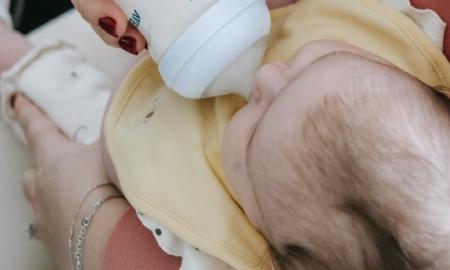College and university mark a time in young people's’ lives that is filled with excitement, change, emotion, and potentially worry. Getting the most out of your post-secondary experience may seem like a simple task; however, this is not necessarily as straightforward as you may have thought. Peter Russo - recipient of the 2018-2019 Teacher of the Year Award presented by the East Baton Rouge Parish – wants all students to get the most of their educational experience, therefore he has developed this eight-step guide to help you maximize your experience.
1. Check your Credits
Are you aware of all the credits that you need to earn your degree? Post-secondary institutions have a much more complex system than high school, there are options to take courses you have never even imagined. Take the necessary time to research your program and all the credit requirements needed to graduate from your desired degree. Peter Russo stated that new students often fail to conduct the proper research regarding credits and discover in their last semester that they are missing a required course. Students are often either misinformed of their requirements or get lost in the endless courses available for study.
An excellent strategy to avoid an extra semester due to improper credits is to meet with an academic advisor and map out your desired course load per year. Academic advisors are a fantastic resource that all students should take advantage of, after-all they are the experts. Meet with your academic advisor on a semi-regular basis, they will help ensure you are on top of your degree.
2. Establish a Study Space
Many students believe that they can use their residence as a study space, but often this type of environment can limit how effective your studying is. Prior to establishing your study space, determine what your learning style is. The most effective study spaces reflect your individual learning style, Peter Russo adds that you will set yourself up for success if your study space is complimentary of your learning preferences and personality.
It is recommended that your study space limits distractions, do not assign your study space to be the common room of the loudest building. Explore your campus or city and find the environment that works best for you. Make it a habit to retreat to your chosen space when you get homework or studying done. Your brain will associate this space with the ‘time to work’ mentally, which will help you focus and remain productive.
3. Try Tutoring Opportunities
Tutoring is a valuable resource that many students fail to take advantage of. Struggling with course work is completely normal, and many of us will experience difficulty with new materials or topics. Peter Russo is a strong advocate for tutoring, he claims that it provides you with the advantage of one-on-one learning in a relaxed environment.
Tutoring is a two-way opportunity that can allow you to share your expertise on a topic with a struggling student. Not only will you further your understanding of the topic by consistent exposure and discussion of the materials, you can add this skill to your resume and potentially be paid for your time. Peter Russo further added that tutoring is not limited to the traditional model of tutoring, make the effort to attend the office hours of your professors, they are there to clarify any questions you have.
4. Extracurricular Activities
All universities and colleges have some form of extracurricular activities. Conduct some research and find out what clubs or organizations your institution offers – you will be shocked at all the options out there. Adding an extracurricular activity to your routine will expose you to like-minded individuals who share a common interest.
Extracurricular activities are not limited to intramural teams, they can expand to include organizations, clubs, trivia nights, open mic nights, and councils. Get involved in a cause you support, join a team and have fun exercising, you wont regret involving yourself!
5. Socialize
University and college are not purely about academics. Post-secondary is a time for exploration and discovery, put yourself out there and determine what you truly enjoy. Make an effort to allocate time for hobbies or pastimes that you value, don’t let academics stand in the way of your happiness.
Peter Russo suggests that a simple strategy for socializing is to form a study group designated to specific courses. Studying with a group provides the unique opportunity to learn in a relaxed environment while forming relationships with your peers.
6. Seek New Experiences
Much like extracurricular activities and socializing, new experiences provide you with the opportunity to discover what you truly value and enjoy. Take the time to make an effort and experience new things. Expose yourself to new and exciting activities, go ahead and try that sport you have always wanted to try, or take a leap and learn a new culinary skill.
Remember to always remain safe, respect others and the law, and prioritize your course work ahead of social experiences.
7. Build Relationships with your Professors
According to Peter Russo, forming a relationship with your professors is a critical step to getting the most out of your college or university experience. Attending office hours and regularly asking questions will differentiate you from your peers, professors will notice the effort you are making and will be happy to assist you whenever needed.
Forming meaningful relationships with your professors not only helps during your studies, it will also provide you with an excellent reference for later applications. Many students fear professors, but Peter Russo wants all readers to remember that professors are humans, and their primary mandate is to share knowledge with you. Professors are full of wisdom and life experiences, get to know your professor on a personal level and you will be exposed to more than academic knowledge.
8. Stay Healthy
Ask anyone who has attended a post-secondary institution and they will all tell you the same thing, stay healthy – it is easy to get lost in the cycle of convenient eating and lack of exercise. Taking care of yourself is important; more specifically, you must exercise and have a balanced diet to maximize your brain functions. Peter Russo wants to remind students to practice healthy habits, avoid binge-drinking, and take the time you need for mental health.
Use the resources available to you, make sure you visit the campus gym or attend sessions with an advisor or counselor to maintain your mental health. Take the time to be outdoors, walk whenever you can – you would be amazed at how much fresh air and walking will help your mental state.
Peter Russo’s Final Thoughts
Four years may as well be an eternity to a new student; however, these are your years for freedom, experimentation, and self-discovery and they will fly by. Remember to enjoy your freedom and take care of yourself, your stress levels will thank you for it. If you take the time to practice each one of these tips on a regular basis you will most certainly achieve everything you could imagine from your post-secondary experience.






